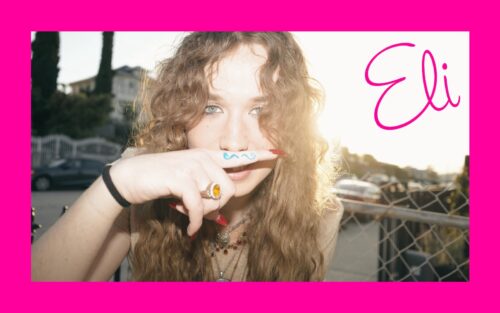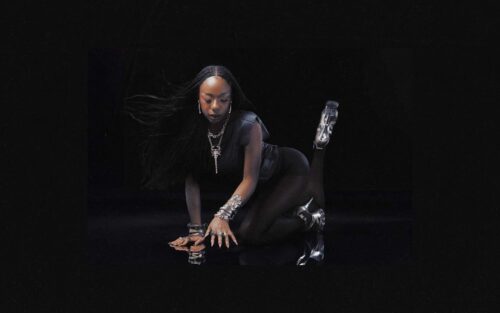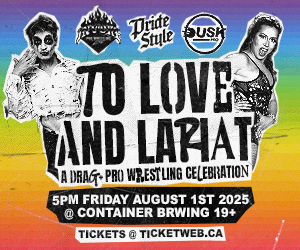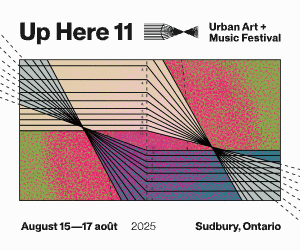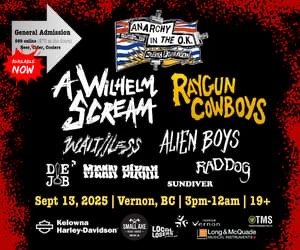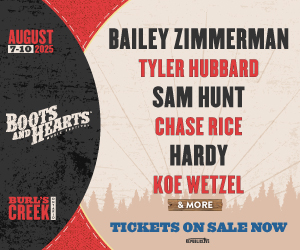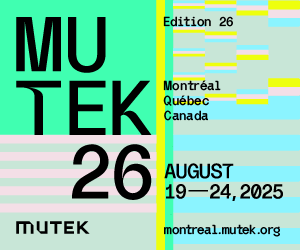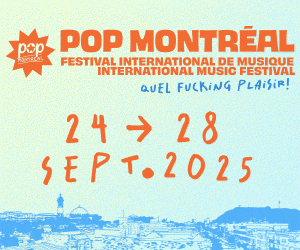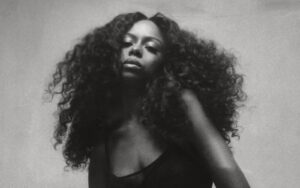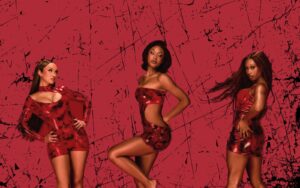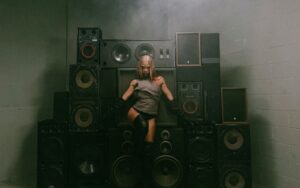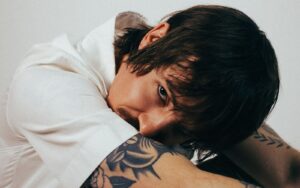
Kaeyae Alo is Making Space For Herself, By Herself
How the Calgary singer’s experience as a spin instructor inspired her to roll into her true passions with purpose.
by Daniel McIntosh
Photo by Jared Bautista
- Published on
Kaeyae Alo is always in the process of becoming. When I connect to the Calgary-based singer over the phone, I can hear her directing stagehands as she sets up the listening party for her debut EP, 17Times. There’s a tinge of relief in her voice, as this is the first time in her music career she’s had actual assistance in processing her music. Calgary, as she says, isn’t widely known as a musical city, and finding collaborators proved difficult. Alo says it took a long time to find “the village” of producers, photographers and friends that worked on the project. “It gave me so much hope that in a place like Calgary, where you might not expect to find talent like this, it exists. It just needed to be nurtured. It just needed to be given an opportunity. They’re giving me my first opportunity too, it goes both ways.” One collaborator, spoken word artist Priscille Bukasa, provides the words to the intro “The Counting Begins.”
Alo also leaned on her experience as a spin instructor to influence her voice as an artist. Being one of the few Black instructors in Canada, in an activity that uses hip-hop and Afrobeats to inspire energy, Alo feels a duty to represent herself in front of audiences. “I’m the only Black woman instructor. There are very few clients who are Black in this space, even as a whole in Canada. It’s a predominantly white activity that borrows from Black culture.” And yet, her position as an instructor tracks into her music as it taught her how to lead a room. Being able to direct a class three times a week taught her to respond to the energy around her, but also provided a source of inspiration for cultivating space for Black people. “I wanted black people to feel like they belonged in an environment in an industry that grows and takes over their culture and they feel like they belong there. But also for everyone else; big bodies, little bodies, everything in between.”
The Black Lives Matter movement was also a big touchpoint for Alo, who says it felt like “a fork in the road where people got to make a choice in which way they went.” Alo went to the studio. Shaking off the malaise of the endless news cycle, she lost herself in the film Malcolm & Marie. Penning lyrics as the movie played on silent in the background opened up a well of inspiration. The on-screen conflict inspired the first lyrics that would go on to make up 17Times. “Watching that film was the ultimate spark,” says Alo. “I would watch for weeks at a time inspired by the movement rather than the words. And that was what birthed a lot of the songs on this EP.” The sense of movement is tangible on 17Times. Alo’s smoky, stacked vocals give a sense of embodiment to her evasive, curious vocals, making sense of feelings with image and verse.
RANGE caught up with Alo to discuss self-advocacy, finding a celebrity fan in South Africa, and building an arts community outside Canada’s musical core.
Hi Kaeyae! How’s your day been?
It’s been wild. I understand why people have such big teams because being a one-woman show is a lot. I am my own assistant, my own everything.
Is that an average day for you?
An average day does not usually look this crazy. Typically, I am a [spin] instructor. I usually teach a class, I’m usually playlisting, getting ready for classes. I put a lot of work into that. It takes up a lot of my time, researching for my clients, and then going into the studio at night. That’s usually an average day for me.
Congratulations on the release of your EP! Could you tell us a little bit about the journey toward making this and putting it all together?
It was a lot of learning, a lot of testing my patience. Trying to find the balance of being graceful but also not taking shit, because I also am a Black woman. That is a factor in trying to make art in the capacity of who I am. Finally, after trying to put this thing together for two years, it was really exciting when I met artists that were excited, and understood what I was trying to do, and then were able to come on board. I know this might sound a little bit cheesy, but the biggest thing that I held onto while making this body of work was learning how to be impeccable with my work and in exchange, finding alignment with people who also feel the same way. A lot of learning to get here, but I’m really glad it’s finally done.
You mention being outside of Montreal, Toronto, New York, there’s not a huge creative community that bands together. Do you find that being outside the core gives you any sort of validation or any assets, or even space?
I’m hoping that I’m going to find out the answer to that with how this performs. I’ve only put out four singles before this. I got really lucky, because when I put out my very first single, somehow it got in the hands of Black Coffee. I have no idea how he got his hands on my first single, but I was literally sitting in church and saw a notification that said Black Coffee mentioned you on his [Instagram] story. I thought it was spam, so when I went and pulled up the notification and saw that he was listening to it on a drive. He was just playing my song! I don’t know him, I have no connection. and never met him, that was insane. So I’m curious to see what’s going to happen with this one, if it’s going to have a similar effect.
But yeah, in the process of making it I definitely felt at a disadvantage being here, because my access to artists was limited. But we’ll see if being from a place other than those gives an advantage.
What inspired you to start making your own music in the first place?
I got tired of being someone who called myself an artist who never puts anything out. So I set a goal that if I did not put out any music by the end of 2019, I could no longer call myself an artist. It’s been a lifelong dream. I wanted to start, wanted to be brave, and get over all the insecurities. I didn’t grow up with music. Obviously I listen to music, but I didn’t have the privilege of taking piano lessons or learning how to read music or be in a band.
I had typical African parents who just wanted to focus on education; music was a distraction. It was something that wasn’t encouraged or allowed when I was growing up. I felt a lot of challenges being 18, finally having freedom, leaving home, going to university, and then going ‘okay, I want to start now.’ So it took a while. It was a lot of learning, but mainly a lot of getting out of my own way. But yeah, finally in 2019, I decided to get out of my own way and go for it.
You mentioned being inspired by the movement in Malcolm & Marie, and having it on silent in the studio. Spin is another activity that’s also bodily based. In my interpretation of 17Times, that physical embodiment stands out. Do you think there’s a connection there at all? Is that something conscious to you?
I wanted to embody the heaviness that I feel as a black woman, as a woman, as an artist, as a person that exists in this crazy time that we live in. I also wanted to play around with a lot of sounds, to embody feelings, like you’re saying. The gentleness of guitar chords, and then all of a sudden a drop happens, and then you’re hit again with 808s. That was really important to me when I was making this, so I’m really glad that came through.
There’s also a spoken word, counted in the intro. Can you tell me a bit about the collaboration that went into that?
Priscille Bukasa is a local spoken word artist. I had initially approached her because I’d written the songs, but wanted to bring in a certain female power that she embodies. I watched her perform at a completely different event a couple of years ago, and that performance has never left me, it haunted me. Her cadence and the way she delivers a message is incredible, and I thought that that definitely was how I wanted to introduce the project, with her voice and her words.
What are some things that you want people to know about you – both as a person and an artist?
That’s a big question. I want people to be able to see themselves in me and start to shift the story of otherness. I hope that, as a Black woman, people of all ethnicities are able to see themselves and understand that our stories ultimately are the same. We all experience heartbreak, we all experience loss and insecurity, and struggle with all the ways we let ourselves down. That’s what inspired the title, 17Times. It began as a numeric metaphor for all of the ways in a day that I feel like I’m selling my freedom to just survive as a Black woman in society. All the times I have to hold my tongue, or be agreeable when I don’t want to be just so that I’m able to survive. I feel like 17Times applies to so many different people, Black, white, anybody. I just hope that people will be able to find safety in the spaces that I hold in all of my songs.
What’s the perfect way to spend a day in Calgary?
I’ll start with this spin class in the morning, because I’ve got to get the energy right. There is such a beautiful food scene here, so then I like going for a really good brunch. There are such vibrant art galleries that are constantly wanting to promote and push culture forward in the city. Going to Contemporary Calgary, the Esker Foundation, those are great places to go. The Esker offers free admission to view whatever exhibits they have going on. And Contemporary Calgary always is always putting on amazing exhibits that not only profile artists of colour, they profile Indigenous artists, women, folks that exist on the gender spectrum in between. So I definitely would highly recommend doing that in the afternoon. There are pockets of space here that put on really dope shows, like Commonwealth. I feel like knowing about pockets like that make Calgary worth it.There’s so much to do, but that’s what I would do in a day. Start off with spin, indulge in some food, go check out some art, and then go hit up a really dope show.
By Cam Delisle
The kitschy, Gen Z figurehead talks Hannah Montana, escapist-pop, and her ongoing project, Stage Girl.
By Ben Boddez
The Toronto genre-bender speaks on shining brightly while not flying too close to the sun.



